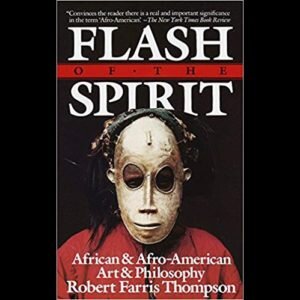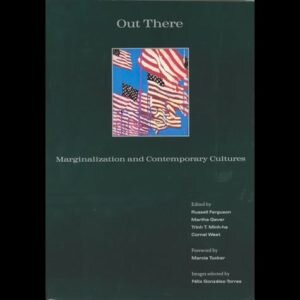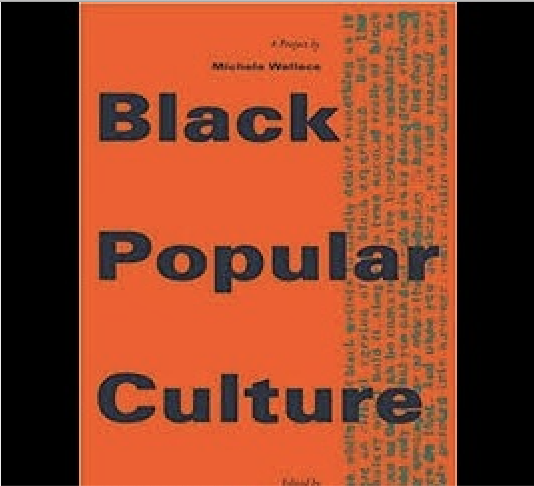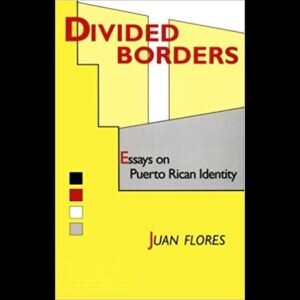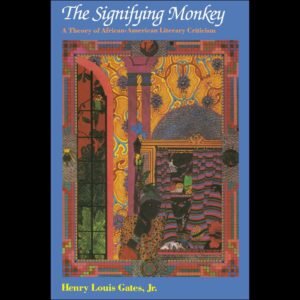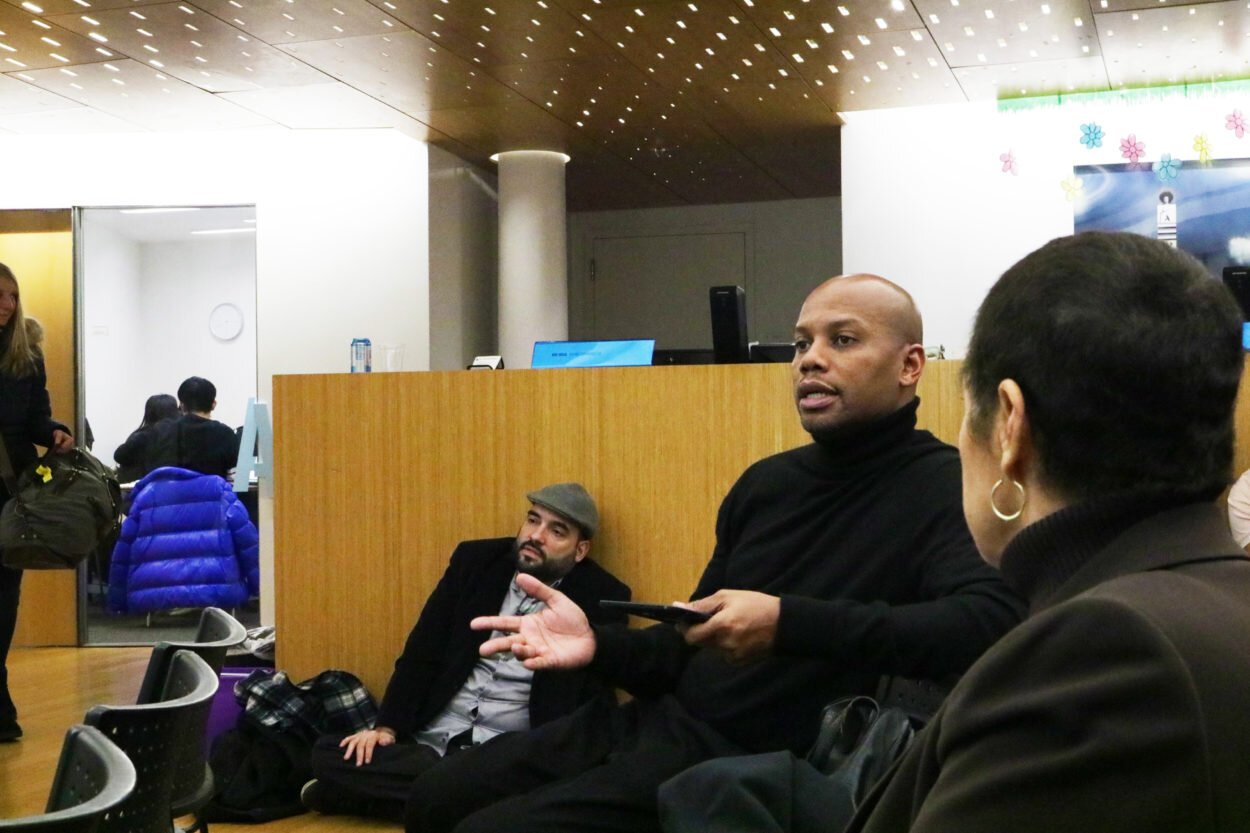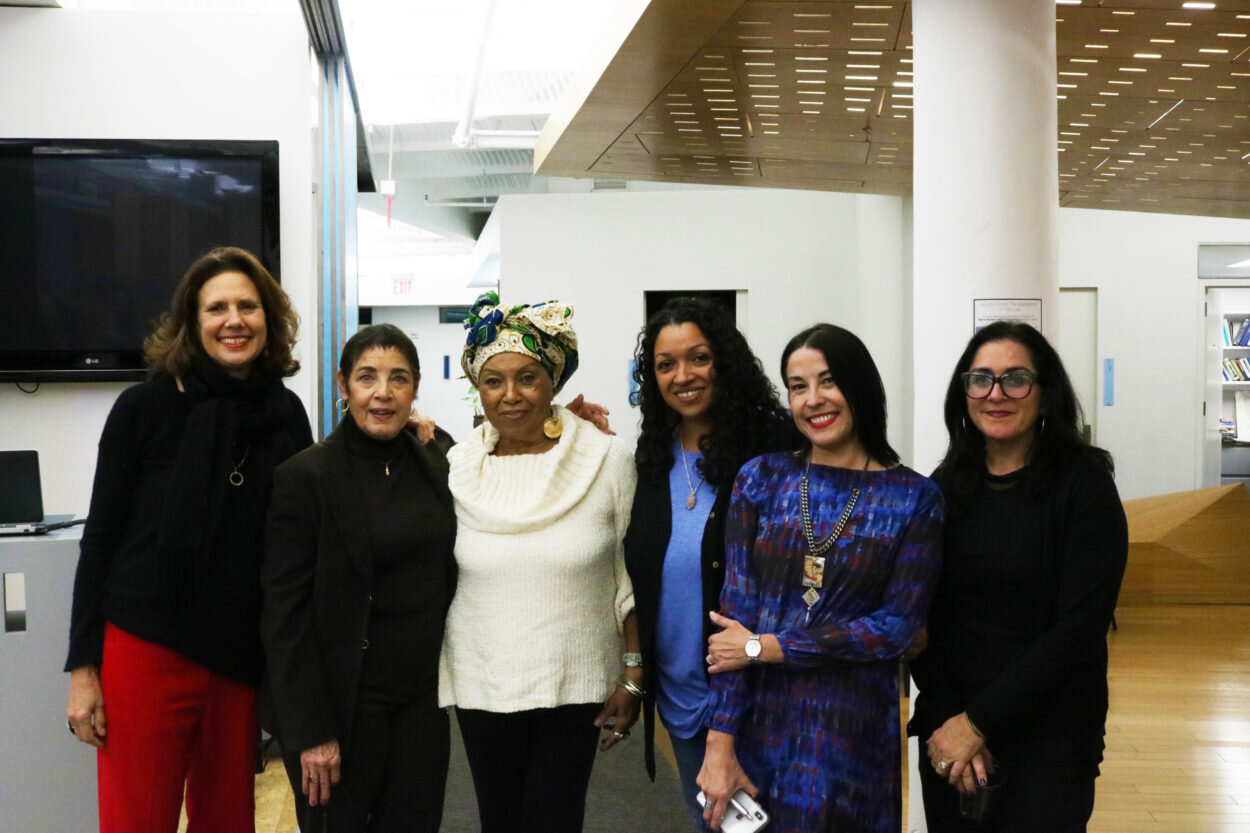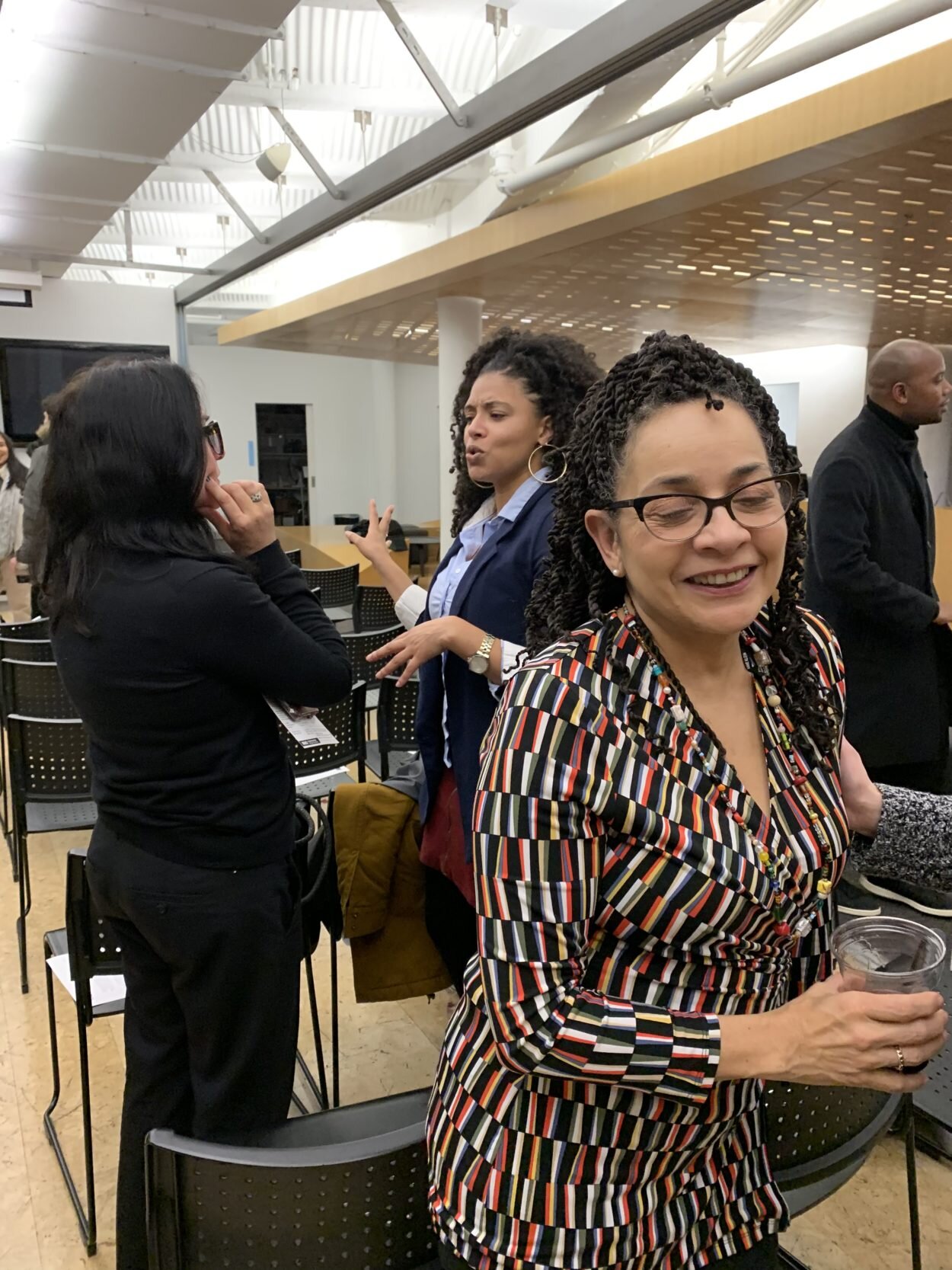A conversation with independent curator Yasmin Ramirez, Curator and Arts Promoter Rocío Aranda-Alvarado and artist Yasmín Hernández reflecting on the work of Dr. Marta Moreno Vega; the impact and legacy of her publications, exploring cultural equity, decolonizing institutions, art history, and more.
Yasmin Ramirez, Ph.D., is an independent curator who specializes in Nuyorican and Latinx art. She is an adjunct curator for the Bronx Museum of the Arts and serves on the National Steering Committee for the biennial conference, Latino Art Now.
Yasmín Hernández is a Brooklyn-born and raised artist who researches, reflects, writes and paints on repatriation, healing, light, and love as de-colonial strategies.
Rocío Aranda-Alvarado is a Program officer for Creativity and Free Expression at the Ford Foundation, and a long time curator El Museo del Barrio and the Jersey City Museum.
Event Recap
On November 27th, 2018 we honored Dr. Marta Moreno Vega, an advocate for Afro-Latinx, Puerto Rican, & Indigenous rights/visibility. We invited three arts professionals including independent curator Dr. Yasmin Ramirez, artist and writer Yasmin Hernandez, and curator Rocio Aranda-Alvarado to highlight and observe Dr. Vega’s legacy fighting for cultural equity.
This event comes as we celebrate the 25th anniversary of Dr. Vega’s edited volume ‘Voices from the Battlefront: Achieving Cultural Equity.’ The Latinx Project’s Director Arlene Dávila opened the event discussing how matters of cultural equity are issues the project aims to highlight regularly, issues that she says are almost synonymous with Marta Moreno Vega.
We heard from Dr. Yasmin Ramirez who said Dr. Vega’s book, Voices from the Battlefront: Achieving Cultural Equity, was her first introduction to Afro-Boricua art history and when she learned that Afro-Boricuas were written out of history.
Diasporic artist, Yasmin Hernandez whose practice centers de-colonial aesthetics then discussed her first memories hearing Dr. Vega speak and being inspired by her ability to build cross-cultural coalitions. She also asked questions about decolonization and how we undo colonized narratives of U.S. supremacy. She credits Dr. Vega’s references to back to Africa's movements as inspiration for what she calls her “rematriation” to Puerto Rico from Brooklyn.
Rocio Aranda-Alvarado discussed how Dr. Vega was a living example of how cultural workers and art are should support the growth of community. She also added that Dr. Vega was key in creating the philosophical underpinnings of El Museo del Barrio which include maintaining a responsibility to educate and connect meaning between the community and the objects in the museum.
Aranda-Alvarado also referenced several innovative exhibits put on by Dr. Vega that she has looked to throughout her career as guiding examples like shows on Katherine Dunham and Elizabeth Catlett, The Art Heritage of Puerto Rico at the Metropolitan Museum of Art (exhibition catalog can be downloaded here and Transforming the Crown: African, Asian and Caribbean Artists in Britain, 1966-1996.
Below are books Dr. Vega shared that informed her education about Black, Latinx, and Indigenous intellectual frameworks and philosophy.
Flash of the Spirit by Robert Farris Thompson
Out There: Marginalization and Contemporary Culture by Russell Ferguson
Black Popular Culture by Michelle Wallace
Divided Borders: Essays on Puerto Rican Identity by Juan Flores
The Signifying Monkey by Henry Louis Gates Jr.



